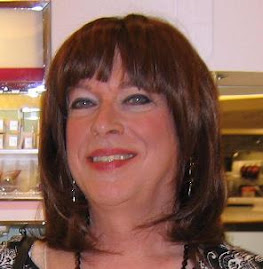Details to follow.
Sara Barker shines in expressive and colorful ‘Orlando,’ at Theatre on the Run
The setting, for the moment, is the deck of a ship, but the turbulence you notice is not the movement of waves: It’s the roiling of feeling — shock, wonder, disquietude, pleasure — as a woman adjusts to a new experience: being a woman. You can see the conflicting emotions and sensations flicker across the face of hero-turned-heroine Orlando as she sits bemusedly in a deck chair, adjusting to the discomfort and coquetry of a gown and a string of pearls.
Thanks to the expressiveness and poise of actress Sara Barker, this shipboard tableau is one of the most resonant moments in WSC Avant Bard’s diverting and colorful “Orlando,” directed by Amber Jackson at Theatre on the Run. The scene occurs early in the second half of the play, adapted by Sarah Ruhl from Virginia Woolf’s adventurous 1928 novel about a would-be poet who changes genders and lives for centuries. In the first act, starting in the 1500s, the wide-eyed Orlando is a young man, and Barker exudes an apt coltish awkwardness while depicting the character’s dalliance with Queen Elizabeth I (Mario Baldessari), passionate love affair with an untrustworthy Russian princess (Amanda Forstrom) and sojourn in Constantinople.But it is in the show’s second half, which follows the now-female Orlando through the 18th and 19th centuries and into the 20th, that Barker really lights up: Her voice, face and body language convey the near-overload of awareness and observation that are Orlando’s burden and joy. At the same time, the actress emphasizes the character’s ambivalent feelings about socially defined gender roles.
None of the other actors in the production matches Barker’s artistry. But other elements, to some degree, compensate for this drawback. Ruhl’s script — which often filters bits of narration through the voices of a chorus (Baldessari, Andrew Ferlo and Jay Hardee) — ingeniously distills the poetry and impish humor of Woolf’s novel. And with various clever touches, director Jackson and her designers turn the lyricism and comedy into a fetching magic-lantern/music-hall kind of entertainment.
Set designer Steven Royal frames and backs the story with screens whose white fretwork pattern evokes male and female gender symbols, as well as the Tudor rose. Frequently, Joseph R. Walls’s lighting infuses these screens with color, helping to conjure various locales, including a festive Renaissance London street, the court at Constantinople and an early 20th-century department store. Barker’s Orlando also spends time beneath a mobile of paperlike scraps that dangles at the rear of the audience seating area; the mobile, which represents an oak tree and also symbolizes Orlando’s writing career, helps give the production a sense of immersiveness.
And while we are immersed in Orlando’s semi-fantastical world, we meet, among other characters, an etiquette-conscious Sea Captain (Ferlo) on the ship that ferries Orlando back to England from Constantinople. Also making a couple of appearances is a quirky Archduke (Hardee, somewhat overdoing the shtick) who dresses first as a woman and then as a man in an attempt to woo Orlando, and ends up nearly boring Orlando to tears. Among the other acting turns, Baldessari does a relatively nice job displaying both the pathos and the grotesqueness of the arrogant, aging Queen Elizabeth.
But some of the most memorable contributions to the spectacle come from objects and textiles: the bits of sandpapery wood that actors scrape together to summon the sound of Elizabethans skating down the frozen Thames; the striking black and white blouse, skirt and parasol that descend on Orlando (other actors, acting as dressers, make this possible) to signal her entry into the prim Victorian era; or, especially, a dangling semi-transparent sheet through which we can almost — but not quite — see Orlando’s momentous transformation from man to woman.


Thanks, Meg! So glad you liked Orlando!
ReplyDeleteI also told Goldstar how much I loved the show!
ReplyDelete